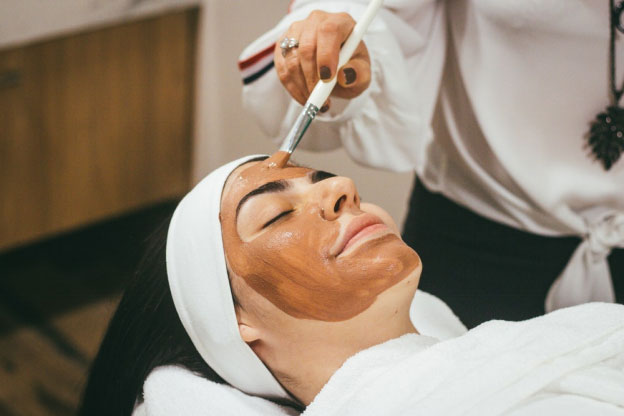Common Skin Problems and Their Causes
At least one in four Americans is infected by some skin disease, and it costs the US healthcare industry around $75 billion. Since they’re very common, it’s crucial to take good care of your skin and take preventive measures to avoid skin problems.
Let’s learn more about some of the most common skin diseases and their causes.

Acne
Skin acne is among the most common reasons people visit the dermatologist. It affects about 85% of teenagers during their formative years. The etiology of acne is unknown, but it's often attributed to three factors: genetic predisposition, hormonal changes during puberty, and inflammation caused by bacteria on the skin surface.
What are some other causes of acne?
The defectiveness of hair follicles (sebaceous glands) inhibits or prevents fat cells from moving along with hair beneath to be exfoliated. This leaves dead cells and sebum on the skin's surface, which can block pores and create blackheads which may turn into cysts if left untreated. Hormonal changes during puberty may also trigger acne.

What are the complications of acne?
Zits aren't the only problem; they can also leave scars upon healing. Acne can leave blemishes on your forehead, nose, ears, and neck. Inflammation of pimples not only causes redness but also blocks skin pores.
What are the symptoms of acne?
Itching, redness, pain, swelling, and cysts are all symptoms of acne. The most common signs include tender whiteheads, blackheads, pimples, or pustules. Oil-based cleansers are used to dissolve oil on the skin's surface. For tough cases of acne that don't respond to topical treatment with benzoyl peroxide or antibiotics applied directly to skin, you can try lesions.
Antibiotics may also be used in combination with other drugs for resistant forms of acne or along with blue light therapy targeting bacteria on skin surfaces. Aside from bacteria, hormonal movements during puberty increase sebum production, which often results in clogged pores and blackheads or zits.

Eczema
Eczema is a skin condition that leaves dry, red patches of skin. It can affect any area of your body and cause itching and irritation. Most commonly, this causes itchy rashes on the face and hands, but the condition can also affect other parts of your body, such as your feet or scalp. It’s sometimes referred to as atopic dermatitis, which means it affects people who have allergies or suffer from asthma. Many children that suffer from eczema grow out of it at a young age, but that does not mean that adults cannot develop the condition.
What causes eczema?
The causes behind eczema are still unknown, and there is no evidence to state whether it is genetic or not. However, studies suggest that the condition may be brought on due to environmental problems such as skin irritants and allergens. Once an individual has become allergic to something, the body will automatically try and protect itself by overreacting as well as stopping any further potential allergens from entering the body.

What are the main symptoms of eczema?
The main symptoms of eczema are dry patches of skin that appear red and sore. Most commonly, these appear on the arms, legs, face, and scalp; however, they can also affect any other part of your body. This is because eczema affects all your body's moisture levels. If you have eczema, water cannot get to the affected areas causing them to become dry and scaly. There may be itching, too; this may cause discomfort but is not too dangerous. People may find that the symptoms worsen during the cold or dry winter months because your skin naturally dries out more.
Psoriasis
Psoriasis is a chronic autoimmune disorder that covers the entire body in patches, scales, or plaques. It is one of the most common types of skin disease and affects around 2-3% of the population worldwide.
What causes psoriasis?
A genetic predisposition and environmental triggers such as stress and inflammation contribute to this disorder, but little is known about what causes it. The exact cause may be unknown, but it appears that there may be some association with certain infections during pregnancy or an infection during infancy.
Psoriasis has been associated with several infections, including viral diseases such as herpes simplex virus, molluscum contagiosum, and varicella zoster. Some infectious agents may cause psoriasis directly or indirectly by causing high levels of inflammation. Other infectious agents may trigger immune system abnormalities that lead to psoriatic inflammation.
What are the symptoms of psoriasis?
Psoriasis is characterized by measurable patches of thickened and inflamed skin covered with silvery scales that are usually red or silvery brown in color. Psoriatic plaques normally appear on the elbows, knees, lower back, scalp, fingernails (especially the fingers), and toenails. However, they can occur in any area of the body. The affected area is usually painful and itchy. They may also become cracked and bleed easily under certain circumstances.
Affected skin may also appear redder than normal skin. Red patches are usually found over raised areas (plaques). Plaques may be round or oval, or they can be areas of flat, inflamed, thickened skin. Psoriasis affects the fingernails and toenails; it does not cause changes in toenail growth, but fingernail changes are common.
Psoriasis typically develops during the teenage years, but some cases are sporadic. It is more common in men than women. Older individuals are more likely to develop the widespread disease. Women are also more likely to have plaque involvement of the scalp.
Most of these skin problems can be treated with preventive care and the right skincare routine. However, you shouldn’t ignore any symptoms or recurring issues and must contact your dermatologist immediately.
If you’re looking for experienced healthcare physicians and dermatologists, we can help you with an online doctor consultation & prescription. TelMDCare is a leading virtual doctors online with a team of professional online doctors who can treat your skin condition, including acne, psoriasis, and eczema.
Book your virtual healthcare appointment today for as low as $35. Call us today to learn more about services!